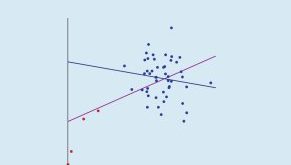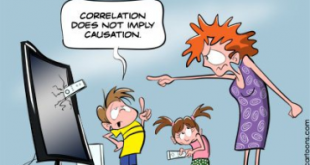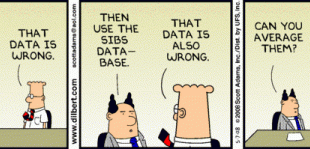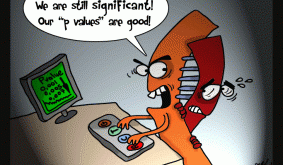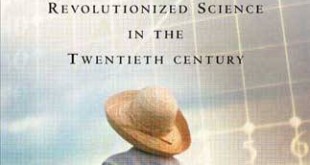In order to make causal inferences from simple regression, it is now conventional to assume something like the setting in equation (1) … The equation makes very strong invariance assumptions, which cannot be tested from data on X and Y. (1) Y = a + bx + δ What happens without invariance? The answer will be obvious. If intervention changes the intercept a, the slope b, or the mean of the error distribution, the impact of the intervention becomes difficult to determine. If the variance of...
Read More »Bayesian overload
Although Bayesians think otherwise, to me there’s nothing magical about Bayes’ theorem. The important thing in science is for you to have strong evidence. If your evidence is strong, then applying Bayesian probability calculus is rather unproblematic. Otherwise — garbage in, garbage out. Applying Bayesian probability calculus to subjective beliefs founded on weak evidence is not a recipe for scientific akribi and progress. Neoclassical economics nowadays usually assumes that agents that...
Read More »Econometric confusions
In a recent issue of Real World Economics Review there was a rather interesting, if somewhat dense, article by Judea Pearl and Bryant Chen entitled Regression and Causation: A Critical Examination of Six Econometrics Textbooks … The paper appears to turn on a single dichotomy. The authors point out that there is a substantial difference between what they refer to as the “conditional-based expectation” and “interventionist-based expectation”. The first is given the notation: E[Y|X] While...
Read More »Econometrics — a Keynesian perspective
Econometrics — a Keynesian perspective It will be remembered that the seventy translators of the Septuagint were shut up in seventy separate rooms with the Hebrew text and brought out with them, when they emerged, seventy identical translations. Would the same miracle be vouchsafed if seventy multiple correlators were shut up with the same statistical material? And anyhow, I suppose, if each had a different economist perched on his a priori, that would make a difference to the outcome. J M...
Read More »Friedman on the limited value of econometrics
Friedman on the limited value of econometrics Tinbergen’s results cannot be judged by ordinary tests of statistical significance. The reason is that the variables with which he winds up, the particular series measuring these variables, the leads and lags, and various other aspects of the equations besides the particular values of the parameters (which alone can be tested by the usual statistical technique) have been selected after an extensive process of trial and error because they yield...
Read More »Why Africa is so poor
Why Africa is so poor A few years ago, two economics professors, Quamrul Ashraf and Oded Galor, published a paper, “The ‘Out of Africa’ Hypothesis, Human Genetic Diversity, and Comparative Economic Development,” that drew inferences about poverty and genetics based on a statistical pattern … When the paper by Ashraf and Galor came out, I criticized it from a statistical perspective, questioning what I considered its overreach in making counterfactual causal claims … I argued (and continue...
Read More »Pitfalls of meta-analysis
Including all relevant material – good, bad, and indifferent – in meta-analysis admits the subjective judgments that meta-analysis was designed to avoid. Several problems arise in meta-analysis: regressions are often non -linear; effects are often multivariate rather than univariate; coverage can be restricted; bad studies may be included; the data summarised may not be homogeneous; grouping different causal factors may lead to meaningless estimates of effects; and the theory-directed...
Read More »Kocherlakota on picking p-values
Kocherlakota on picking p-values The word “significant” has a special place in the world of statistics, thanks to a test that researchers use to avoid jumping to conclusions from too little data. Suppose a researcher has what looks like an exciting result: She gave 30 kids a new kind of lunch, and they all got better grades than a control group that didn’t get the lunch. Before concluding that the lunch helped, she must ask the question: If it actually had no effect, how likely would I be...
Read More »The rhetoric of econometrics
The rhetoric of econometrics The desire in the profession to make universalistic claims following certain standard procedures of statistical inference is simply too strong to embrace procedures which explicitly rely on the use of vernacular knowledge for model closure in a contingent manner. More broadly, such a desire has played a vital role in the decisive victory of mathematical formalization over conventionally verbal based economic discourses as the proncipal medium of rhetoric, owing...
Read More »The lady tasting tea
The lady tasting tea The mathematical formulations of statistics can be used to compute probabilities. Those probabilities enable us to apply statistical methods to scientific problems. In terms of the mathematics used, probability is well defined. How does this abstract concept connect to reality? How is the scientist to interpret the probability statements of statistical analyses when trying to decide what is true and what is not? … Fisher’s use of a significance test produced a number...
Read More » Heterodox
Heterodox

